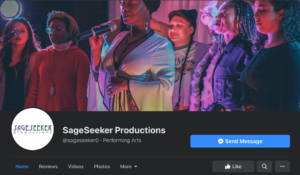Emeline Avignon ’24
Contributing Writer
When Trinity decided to make its winter break nearly four months long, I felt overwhelmed by the idea of a long, cold, isolated New England winter amidst a pandemic. I decided to work as a ski instructor: seemingly the ultimate hack to a pandemic winter. I could be safely outside all day moving my body, meeting others, and working. Nationwide, ski resorts remained open for service all winter long. After being in isolation so long, I was hesitant to see how ski resorts and the Midwest were adapting to COVID-19.
As a ski instructor at Jackson Hole, Wyoming, I taught children between the ages of three and seven, an age bracket which the CDC has deemed nearly non-susceptible to catching and spreading the virus. Lift lines were distanced, masks were required, and adult-to-adult contact was limited. The mountain was a controlled environment to contain spreading, but as a ski instructor, I was exposed to variants of the virus beyond science.
In the business of a pandemic, wealth is an inherent feature of immunity to the virus. The expense of skiing–from the equipment, travel, tickets, lodging, food, and lessons–makes it elite, exclusive, and privileged. Parents would drop off their toddlers, outfitted in head-to-toe Patagonia, and fresh off the plane from anywhere to Miami, Alabama, Poland, or Argentina. I would hear about my students’ Christmases in the Hamptons, or their escape from their Brooklyn home to here in Jackson Hole. Wealth is the key to freedom and safety. With the extra expenses lying around to pay for medical treatment for the virus, the worries of travel are erased.
In December, when the vaccine first started rolling out, my four-year-old student even told me her whole family had been vaccinated. Later, I found out her parents were hedge fund managers, with the means to bribe their vaccinations. Many of these parents threw tips at me like they were tissues. I was conflicted between gratitude and the question of the worth of wealth. Are they grateful for the immunity they are privileged with? Is my gratitude gatekeeping this money to go toward the many more who need more resources than me right now?
I thought a lot about the sociology of people: individualism or collective good? Some people in the lift lines cussed out whoever asked them to put their masks on. People of all ages came to the mountain, everyone had a right to be there and be kept safe. But people still felt entitled to prioritize their individual benefit. So, no – I don’t think they’re grateful for the immunity they have received. Instead, they are scared it will be taken away. So, is my gratitude gatekeeping? Of course it was.
While I was in Jackson Hole, the Capitol was stormed, Biden was inaugurated, and the first vaccines were administered. These were all incredibly important moments in news, with tremendous repercussions, yet I felt completely unaffected. I felt incredibly distanced from it all, in a loop of riding up the lift, then skiing back down. A loop which felt normal, empty of anxieties in a pandemic world. Nothing was complex or involved pre-meditation of logistics. Whatever lay on the other sides of the mountains didn’t seem to matter. These are all immunities which wealth enables: escape, recreation, a quarantined vacation in a wealthy mountain bubble.
As an employee, I milked the authority of my uniform, asking people to wear their masks. In the West, the pandemic seemed to barely exist, the statistics caused no worry like in the East. I looked beyond the instant gratification of profiting off of the narrowing of individualistic values. Ski resorts, especially like Jackson Hole, often employ thousands, and if they were to shut down for breaking mask mandates, all those jobs would be lost. I do not criticize the mobilization of ski resorts to innovatively remain open. On the other hand, I wondered how many outbreaks came from just Jackson Hole alone, which remained in the red-purple zone the entire time I was there.
Those with the means to travel and buy ski tickets and lessons needed their own benefit out of exchanging a salary to those risking their lives to provide these services. This is the ethical battle in the pandemic business, as this same money could just be donated to those in need, and everybody would stay home. All these people in these lodges with this money, they feel immune too.
And I felt immune. Then I tore my ACL. Everything suddenly seemed more fragile. I went home, back to the normal pandemic life. My town was not regulated by distanced lift lines, the cold, vast ocean replaced the peaking Tetons, and the snow was muddied ice. The skiing mobility which made me feel immune, now turned to a paralyzing lockdown: I couldn’t walk. But in my two months at Jackson Hole, hundreds of people spent weeks or weekends. In all my time, people were still paralyzed at home. Now I’m one in the same, and I resent me, too. I resent the wealth, the resources, the escape from the paralyzing, and enclosing fear of a pandemic. The mountains gave a sense of refuge and safety, while COVID-19 was spreading. Ski resorts were the vessels to understanding that the true immunity to COVID-19 is wealth.





+ There are no comments
Add yours